Iranian Political Prisoner Faces Risk Of Execution In Mashhad

Mohammad Javad Vafaei Sani, an Iranian political prisoner held in Vakilabad Prison in Mashhad, is at risk of imminent execution.

Mohammad Javad Vafaei Sani, an Iranian political prisoner held in Vakilabad Prison in Mashhad, is at risk of imminent execution.
The US-based Human Rights Activists News Agency (HRANA) announced the news saying that Vafaei Sani was sentenced to death earlier by Branch Two of the Revolutionary Court in Mashhad, following a retrial.
Babak Paknia, Vafaei Sani's lawyer, revealed that his client initially received the death sentence from the Mashhad Revolutionary Court in January 2022. The charges against him include "corruption on earth through intentional arson and destruction of specific places, including government buildings."
However, following the verdict, the supreme court overturned the decision, returning the case for further review, but his death penalty was upheld.
Vafaei Sani, a 28-year-old boxing coach, was apprehended by security forces in March 2020 during protests triggered by a government decision to hike gasoline prices and demonstrations related to the January 2020 downing of a Ukrainian airliner by Iranian forces.
Before the court's ruling, a substantial bail amount was set for Vafaei Sani's release, set so prohibitively high that it was impossible to meet.
Iran has seen a surge in executions, with the Islamic Republic executing 90 Iranians between December 22 and January 21. UN experts reported that in 2023, Iran executed at least 834 people, eight of whom were linked to nationwide protests. The experts have urgently called on the Iranian government to halt the rising trend of executions and conduct a comprehensive evaluation of death penalty practices.
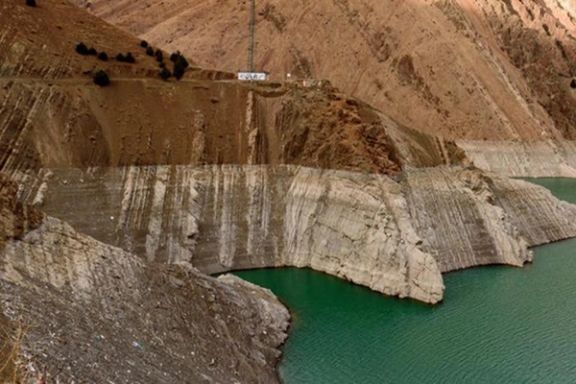
Amidst government denials, the governor of Tehran admitted the country is "confronting a significant challenge in the water sector".
Alireza Fakhari warned that the government "must openly acknowledge the crisis, pointing out the dwindling rainfall which has led to a depletion of crucial water reserves stored behind dams.
Iran is currently grappling with one of its most severe droughts in over half a century, marking the fourth consecutive year of significant water scarcity. The situation has prompted criticism of the Iranian government's environmental management.
Fakhari underscored the urgent need to address the issue, stating, "While some suggest utilizing Tehran's wells for water supply, it's vital to recognize that water stress is a nationwide concern."
Reports indicate that a quarter of Iran's farmers have lost their livelihoods in the past seven years, predominantly due to water scarcity. The repercussions of the drought extend beyond economic impacts, with soil erosion, desertification, and dust storms affecting nearly half of Iran's population, as reported by the country's health ministry.
Expressing concern over the concealment of water shortages, Fakhari criticized the practice and asserted, "It's imperative for people to understand the reality of our water scarcity. It's the responsibility of all officials to communicate this issue accurately and transparently."
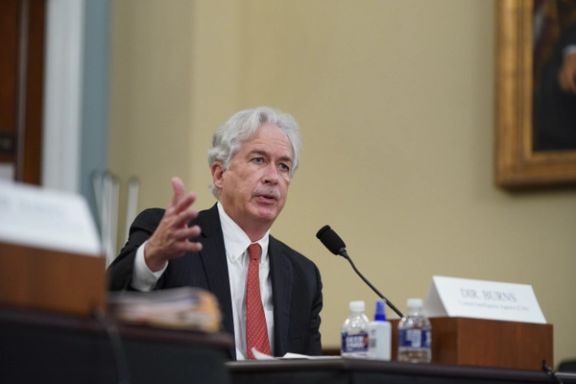
The CIA director has pointed the finger at Tehran in an article addressing the Middle East’s most turbulent times in recent history as it teeters ever closer to war.
“Key to Israel’s—and the region’s—security is dealing with Iran,” wrote William J. Burns in an article called Spycraft and Statecraft in Foreign Affairs.
The US spy chief said the Hamas atrocities of October 7, which has sparked Iran’s proxies across the region to ignite, has only empowered Iran, worsened by a weak US leadership.
“The Iranian regime has been emboldened by the [Gaza] crisis and seems ready to fight to its last regional proxy, all while expanding its nuclear program and enabling Russian aggression,” the spy chief wrote.
“In the months after October 7, the Houthis, the Yemeni rebel group allied with Iran, began attacking commercial ships in the Red Sea, and the risks of escalation on other fronts persist,” he said.
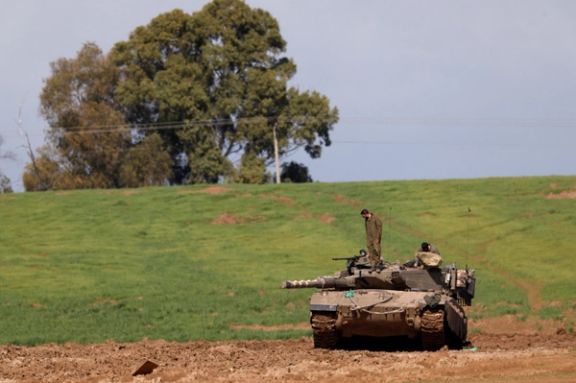
However, with more than 160 attacks by the proxies on US facilities and personnel since the Gaza war broke out, and just a handful of military responses from Washington, there has been little deterrence, he admitted.
“The United States is not exclusively responsible for resolving any of the Middle East’s vexing problems. But none of them can be managed, let alone solved, without active US leadership.”
He said the ensuing “crisis precipitated by Hamas’s butchery … is a painful reminder of the complexity of the choices that the Middle East continues to pose for the United States”.
While competition with China will remain Washington’s highest priority, the Middle East has now reared its head, at a time when Biden has done his utmost to avoid conflict and attempted to pull away from the region.
The withdrawal of troops from Afghanistan in 2021 was a disaster leaving a more emboldened Taliban in charge, and the refusal to deal more strongly with Iran has seen hostages exchanged for billions of dollars yet the regime continues to bolster its nuclear program in spite of global sanctions.
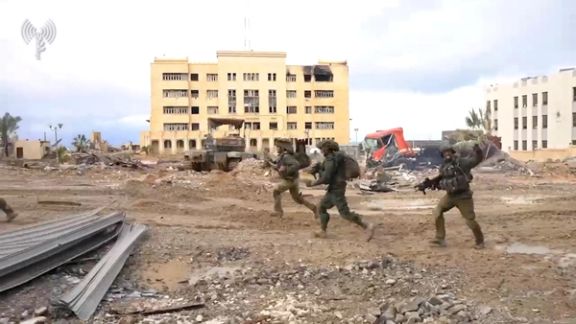
“I have spent much of the last four decades working in and on the Middle East, and I have rarely seen it more tangled or explosive,” he warned. “Winding down the intense Israeli ground operation in the Gaza Strip, meeting the deep humanitarian needs of suffering Palestinian civilians, freeing hostages, preventing the spread of conflict to other fronts in the region, and shaping a workable approach for the “day after” in Gaza are all incredibly difficult problems.”
Beyond the Middle East, Iran continues to inflame the fans of conflict elsewhere, including its assistance to Russia in its unending war on Ukraine. “This year is likely to be a tough one on the battlefield in Ukraine, a test of staying power whose consequences will go well beyond the country’s heroic struggle to sustain its freedom and independence,” he warned, the war now entering its third year.
Iran has become a key ally, supplying the likes of drones used on civilian populations as the two sanctioned nations grow ever closer. “As Putin regenerates Russia’s defense production—with critical components from China, as well as weaponry and munitions from Iran and North Korea—he continues to bet that time is on his side, that he can grind down Ukraine and wear down its Western supporters,” added Burns.
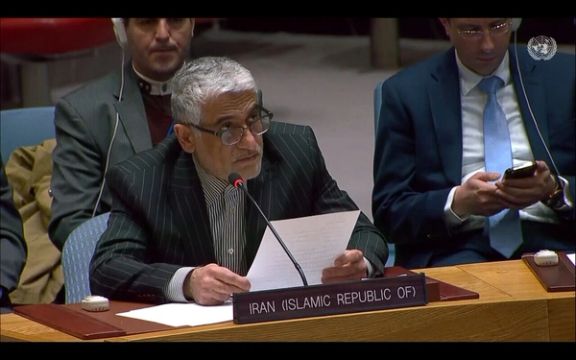
The Iranian mission to the United Nations denied the exchange of messages with the United States over the past two days.
Iranian sources told Al-Jazeera Arabic that “The US sent more than one message to Tehran over the past two days via third parties,” saying that it did not want an open war and warned that escalation would be met with US retaliatory action.
However, Iran’s mission to the UN stated on Tuesday that “any attack on Iranian soil or its interests and citizens beyond its borders will be met with a firm response.”
Iranian-backed militants conducted a drone attack on US troops in northeastern Jordan, near the Syrian border on Sunday.
The attack resulted in the deaths of three US service members and left over 40 others injured, with five suffering from traumatic brain injuries.
Since October, there have been more than 160 recorded attacks targeting American soldiers in Iraq and Syria. However, less than ten percent of the attacks have been retaliated against.
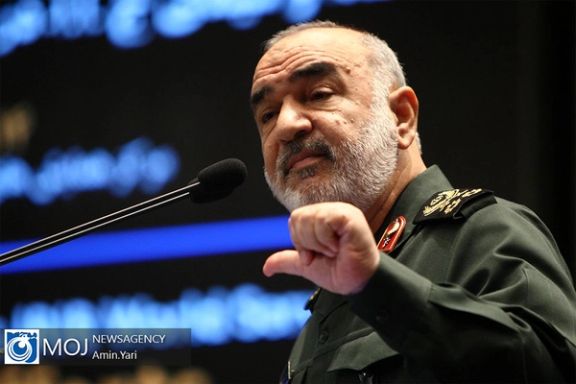
Iran will respond to any threat from the United States, Revolutionary Guards' chief Hossein Salami said on Wednesday, as Washington weighs its response to the killing of American servicemen by Tehran-aligned militants.
"We hear threats coming from American officials, we tell them that they have already tested us and we now know one another, no threat will be left unanswered," Salami said, according to semi-official Tasnim news agency.
A day earlier, the main Iran-backed group in Iraq blamed for killing 3 American soldiers on Sunday, said it was ceasing operations against the US Tuesday, just as President Joe Biden said he had decided how to respond.
Kataib Hezbollah, sponsored by Iran, claimed in a brief statement that it was doing so “to avoid embarrassment for the Iraqi government,” conveniently leaving out the Iranian regime and the imminent threat of US retaliation it faces.
“Our brothers in the Axis [of Resistance], especially in the Islamic Republic [of Iran], do not know how our jihadist work is conducted,” the statement read, attempting to exonerate Iran from the killing of US troops. “They often objected to pressure and escalation against the American occupation forces in Iraq and Syria.”
The statement seems to toe the official line coming out of Iran following the drone attack on a US base in Jordan last weekend: that Iran has had nothing to do with it.
President Biden confirmed Tuesday that he saw Iran responsible for the fatal attack “in the sense that they’re supplying the weapons” to Kataib Hezbollah. He reiterated his wish, nonetheless, to avoid “a wider war” in the region. “That’s not what I’m looking for,” Biden said.
The US President has vowed a “strong” response, leaving the experts to speculate about its nature and the timing.
“It is very possible that what you’ll see is a tiered approach here, not just a single action, but essentially multiple actions,” the White House national security spokesman John Kirby told reporters Tuesday. He too emphasized that the Biden administration is not looking for a war with Iran.
Iranian officials maintain that the country has had no hand in the killing of US forces. But the regime outlets have been consistently boasting about the Axis of Resistance as a legacy of Qassem Soleimani, the IRGC commander killed by a US drone strike in January 2020.
Iran’s ultra-hardline daily Kayhan –which many believe to reflect the thinking of the Supreme Leader Ali Khamenei– has slammed the notion that the regime would “abandon” its Axis allies in the event of US retaliatory attacks.
“[It is implied] that Iran is indifferent to aggression against its allies and is only sensitive to its own soil,” Keyhan writes. “To the contrary, Iran will not abandon its allies… and warns that any aggression will be met with more painful strikes by the resistance front.”
Many in Washington blame the Biden administration for Iran’s increasingly emboldened stance, even calling his policy “appeasement.”
President Biden seems to have been caught in two minds as he tries to strike a balance between deterring Iran and its proxies and avoiding a wider, full-scale war that would further engage the US military. Still, many experts believe that a consequential strike is inevitable this time. US official statements seem to confirm this.
“We will respond, we will respond strongly, we will respond at a time and place of our choosing,” said secretary of state Antony Blinken, meeting NATO secretary general. “Obviously, I’m not going to telegraph what we might do in this instance or get ahead of the president, but I can, again, tell you … we will respond. And that response could be multi-levelled, come in stages and be sustained over time.”
It’s hard to measure the effects of this “wait and see” approach. On the one hand, it signals doubt and lack of determination –which may be comforting and even encouraging for Iran’s leadership. On the other hand, it could exacerbate their apprehension and make them more cautious as they try to guess the time and manner of the American blow.

Yemen's Iran-backed Houthi group said on Wednesday it would keep up attacks on US and British warships in the Red Sea in what it called acts of self-defense.
In a statement, the group's military spokesperson said all American and British warships participating in "aggression" against its country were targets.
The Houthi announcement came after another Iranian proxy force in Iraq, Kataib Hezbollah, announced on Tuesday that it was suspending attacks against US forces.
The Houthis, who control the most populous parts of Yemen, have been attacking ships in and around the Red Sea, saying they are acting in solidarity with Palestinians in the Gaza war. The attacks began in mid-November after Iran’s ruler Ali Khamenei urged Muslim countries to blockade Israel.
The US and Britain have launched retaliatory strikes on Houthi targets in Yemen and returned the militia to a list of terrorist groups as turmoil from the Israel-Hamas war spreads through the region.
The Houthis attacks on the Red Sea have added an economic element to the turmoil by targeting shipping in and around the Red Sea.
The Houthis fired missiles at US warship USS Gravely, the statement added. On Tuesday night, the US military's central command said they had shot down one anti-ship cruise missile fired from Yemen towards the Red Sea with no damage reported.
The Houthi attacks have primarily targeted container vessels. Many fuel tankers have kept using the route.
Some shipping companies have suspended transits through the Red Sea and taken much longer, costlier journeys around Africa to avoid being attacked.
Houthis say they will persist with their military operations until a ceasefire is agreed in Gaza.